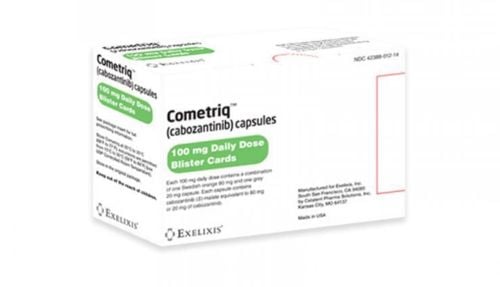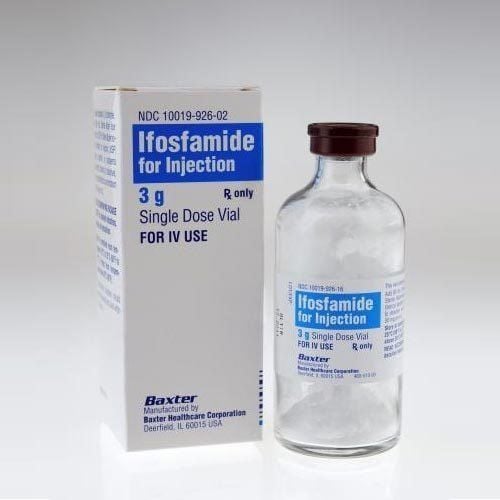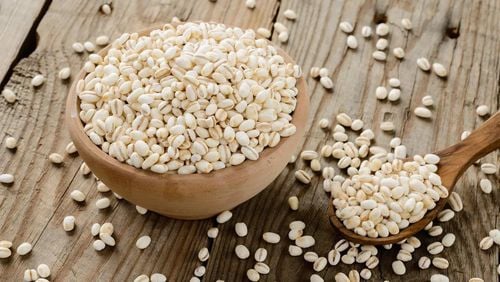This is an automatically translated article.
Midostaurin is used to slow the growth of cancer cells and a few other health problems. Midostaurin is a prescription medication, so it should only be used under the direction of a doctor.
1. What is Midostaurin?
Midostaurin (rydapt) is a tyrosine kinase inhibitor. Kinase is an enzyme that promotes cell growth. There are many different types of kinases, and each of them controls the stages of cell growth. Based on this mechanism, the drug Midostaurin has the effect of slowing the growth of cancer cells.
2. Instructions for using the drug Midostaurin
Midostaurin is made in capsule form, so you should take it orally. The dosage to use Midostaurin is 2 times a day, each dose is about 12 hours apart. However, the dose may vary from person to person depending on the type of cancer and the stage of the disease. You can take Midostaurin with food and should swallow the capsule whole, do not bite or crush, open or chew the capsule.
In case you miss a dose, do not arbitrarily add the dose, continue taking the medicine as usual. Midostaurin may make you feel nauseous. During the use of Midostaurin, patients need to make sure that they follow all the prescriptions set by the doctor and take the correct dose.
The concentration of Midostaurin in a patient's blood can be affected by a number of foods and medications, including: grapefruit, grapefruit juice, posaconazole, voriconazole, some cholesterol medications, rifampin, etc. Therefore, before prescribing a medicine you should give your doctor a list of all the medicines you are taking.
3. Instructions for storing Midostaurin and handling measures
Unused drugs need to be stored in the original packaging, besides need to keep Midostaurin at room temperature and in a dry place. Do not leave the medicine in a place with high air humidity, because these places affect the quality of the medicine (causing mold, moisture).
For expired or unused medicine, it should be handled according to the manufacturer's instructions. Do not flush Midostaurin down the toilet.
4. Unwanted side effects during the use of Midostaurin
Side effects caused by Midostaurin may vary from person to person. Symptoms can be controlled with additional medication. Side effects caused by Midostaurin are quite common and important such as:
4.1 Low white blood cell count and inflammation Midostaurin can cause life-threatening infections. However, the patient may or may not have a decreased white blood cell count. White blood cells (WBCs) play an important role in fighting bacteria that cause infections.
If you have been treated and the white blood cell count continues to decrease, you should immediately notify the doctor to change the dosage or change the treatment method. Some signs that your white blood cell count is tending to decrease include: a worse infection, high fever, cold, sore throat, difficulty breathing, burning or pain when urinating.
Some tips for you to prevent infection:
Practice frequent hand washing with soap to prevent the spread of infection. Avoid people who have a cold, fever or cough or live with someone who has these symptoms. People who are sick do not handle livestock waste. Keep open wounds on the body clean, otherwise it can make the infection worse. 4.2 Patients with anemia (reduced red blood cell count) Red blood cells contain hemoglobin, which carries oxygen to tissues and organs in the body. A low red blood cell count can make you feel tired or weak. When the red blood cell count is much lower than the normal limit, you may receive a blood transfusion.
4.3 The number of platelets decreases When the vessel wall is damaged, the platelet cells will gather and perform the platelet aggregation process right at the wound. This process plays an important role in blood clotting, so a low platelet count means you have a higher risk of bleeding. Some symptoms can be seen in this condition such as nosebleeds, bloody urine and stools, bleeding gums.
4.4 Diarrhea If diarrhea occurs after taking, you may be prescribed additional anti-diarrheal medicine. Also, to limit this problem you can try eating low-fiber, bland foods, such as steamed rice and boiled or grilled chicken. Foods rich in soluble fiber include: bananas (ripe), canned fruit, apple sauce, boiled potatoes, white rice, oatmeal, rice cream, white flour products, cream of wheat and potato chips can help you relieve diarrhea. Drink 8-10 glasses of non-alcoholic, caffeine-free water each day to prevent dehydration.
4.5 Hepatotoxicity Midostaurin may cause hepatotoxicity, so liver function testing should be requested during administration. Clinical manifestations of liver toxicity include yellowing of the skin or eyes, dark or brown urine, or pain in the abdomen.
In addition, patients may experience other side effects of the drug such as nausea, vomiting, fatigue, hair loss, mouth ulcers, anorexia, decreased appetite, peripheral edema (edema of the feet, hands, eyes, and eyes). ankles),...
4.6 Electrolyte abnormalities Midostaurin may affect the normal levels of electrolytes (potassium, magnesium, etc.) in your body. Levels of substances will be monitored with a blood test. If levels become too low, your doctor may prescribe specific electrolytes to be given intravenously or orally. Do not take any supplements without consulting your doctor.
4.7 High blood sugar Midostaurin may increase blood sugar in patients (with or without diabetes). If you experience increased thirst, urination or hunger, blurred vision, headache, or your breath has a fruity odor, tell your doctor right away. Diabetics need to monitor blood sugar levels on a regular basis.
4.8 Lung toxicity Midostaurin can affect the lungs, especially during the first week of treatment. Patients may develop interstitial lung disease, scarring of the lung tissue, or pneumonia, which is an inflammatory lung condition. Tell your doctor right away if you notice any new or worsening symptoms, including: chest pain, cough or fever, trouble breathing or shortness of breath. However, this side effect is very rare.
In addition, patients may experience other side effects of the drug such as nausea, vomiting, fatigue, hair loss, mouth ulcers, anorexia, decreased appetite, peripheral edema (edema of the feet, hands, eyes, and eyes). ankle),...
5. Effects of Midostaurin on fertility
Midostaurin can cause birth defects in the fetus, so you should not intend to have a baby while taking the drug (in both men and women). Contraception should be used during treatment and for at least 4 months after treatment. You should not breast-feed while you are taking Midostaurin or for four months after your last dose. Midostaurin is used to slow the growth of cancer cells. In addition to the benefits of the drug, Midostaurin also causes many side effects. Therefore, before deciding to treat with the drug you should carefully study the information and discuss with your doctor.
Please dial HOTLINE for more information or register for an appointment HERE. Download MyVinmec app to make appointments faster and to manage your bookings easily.













